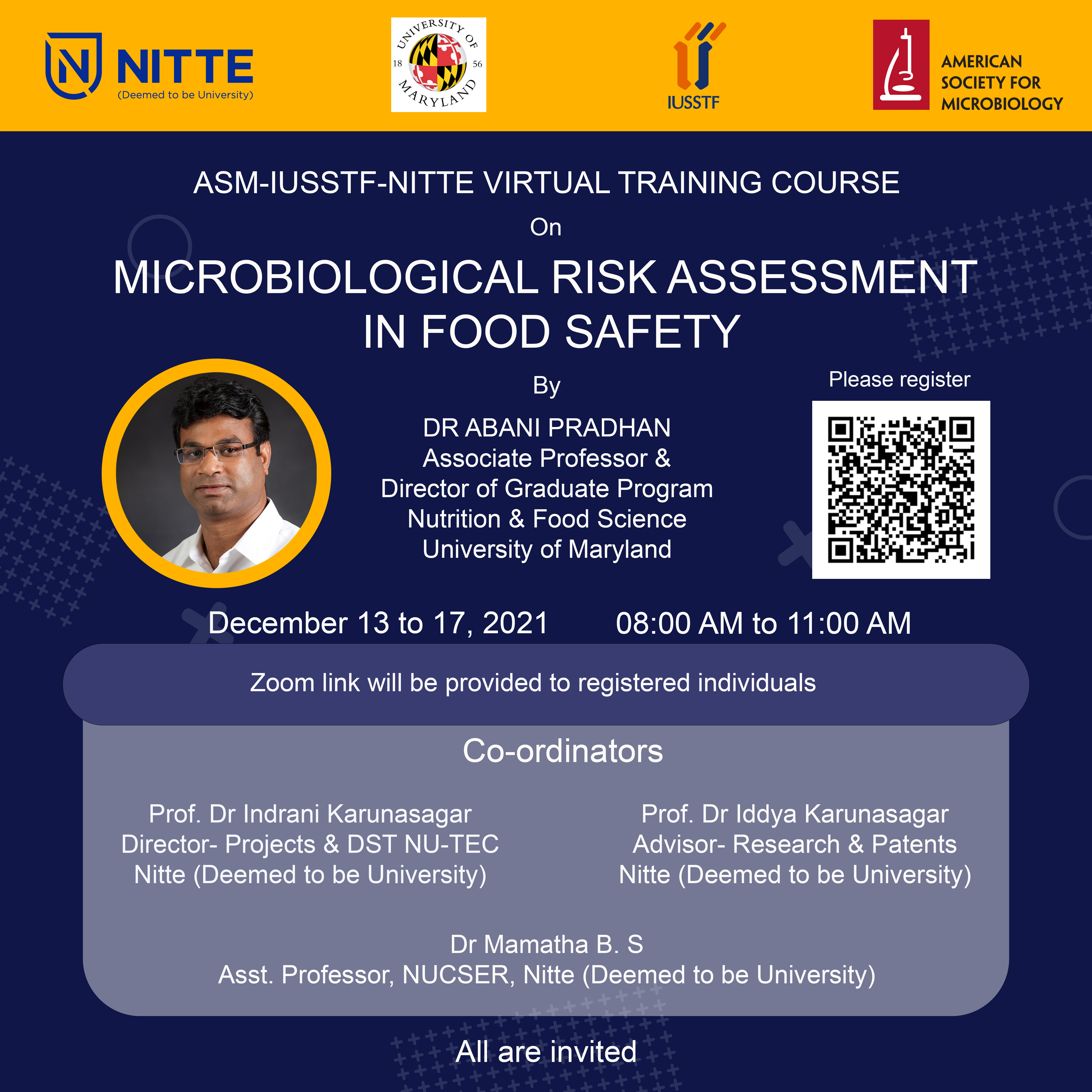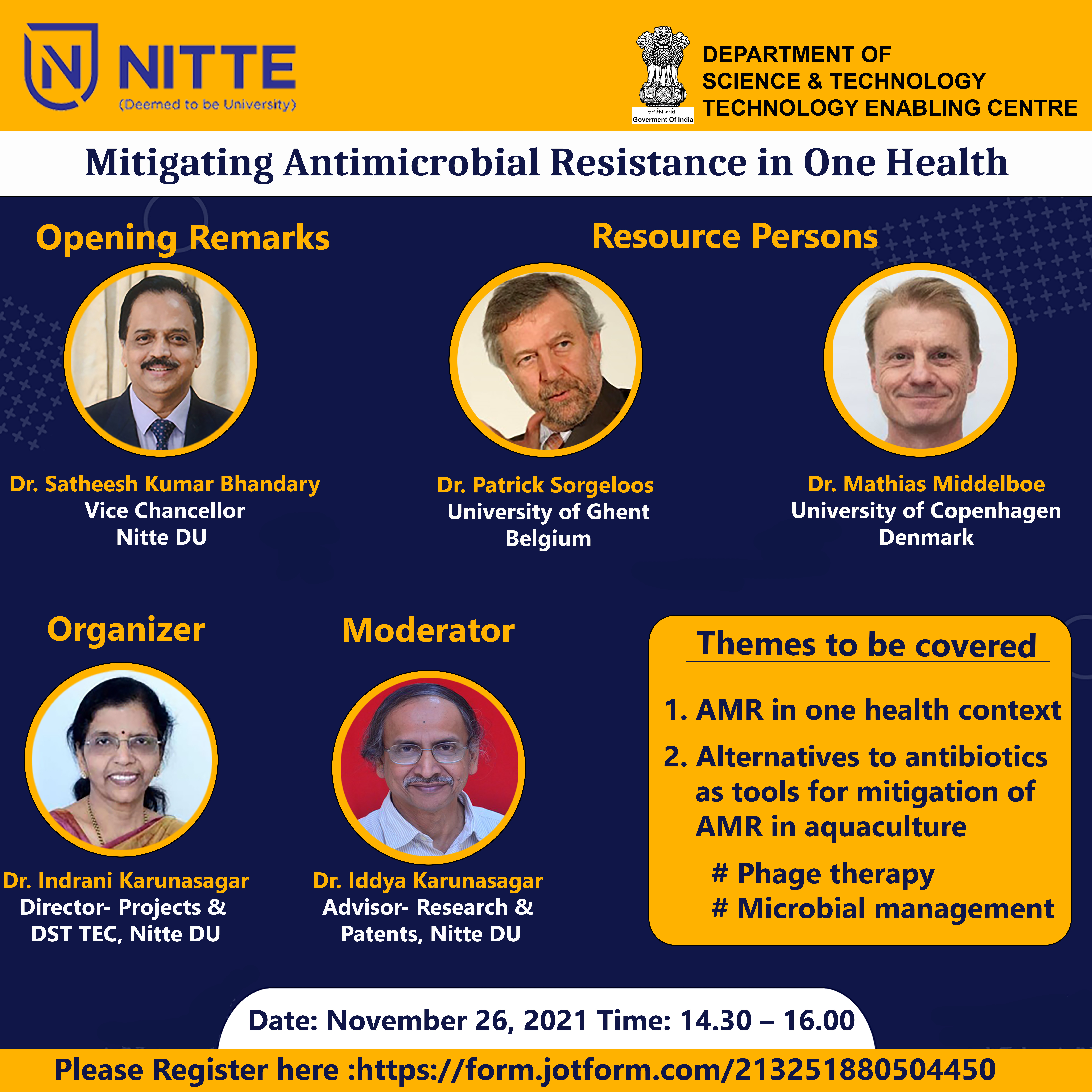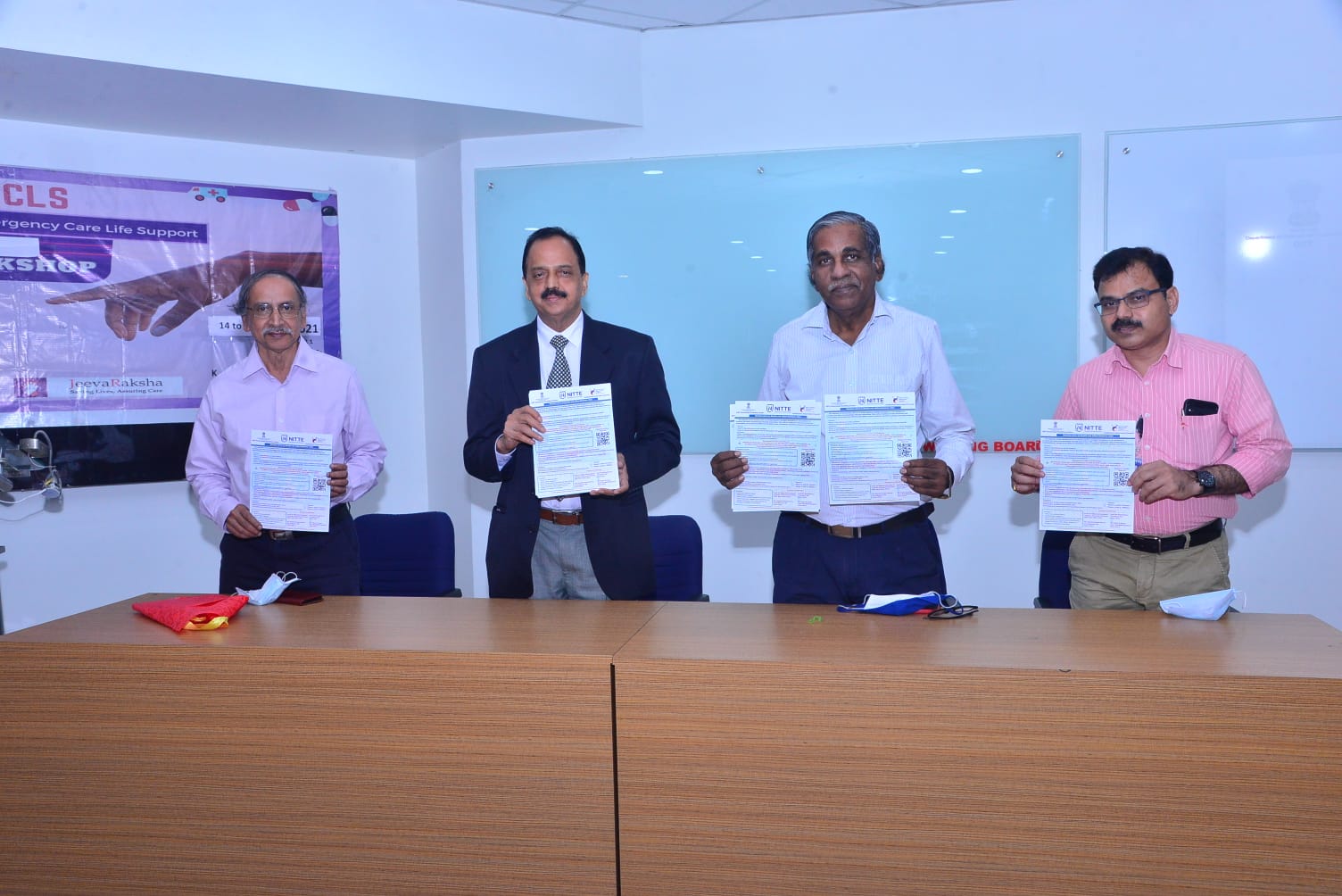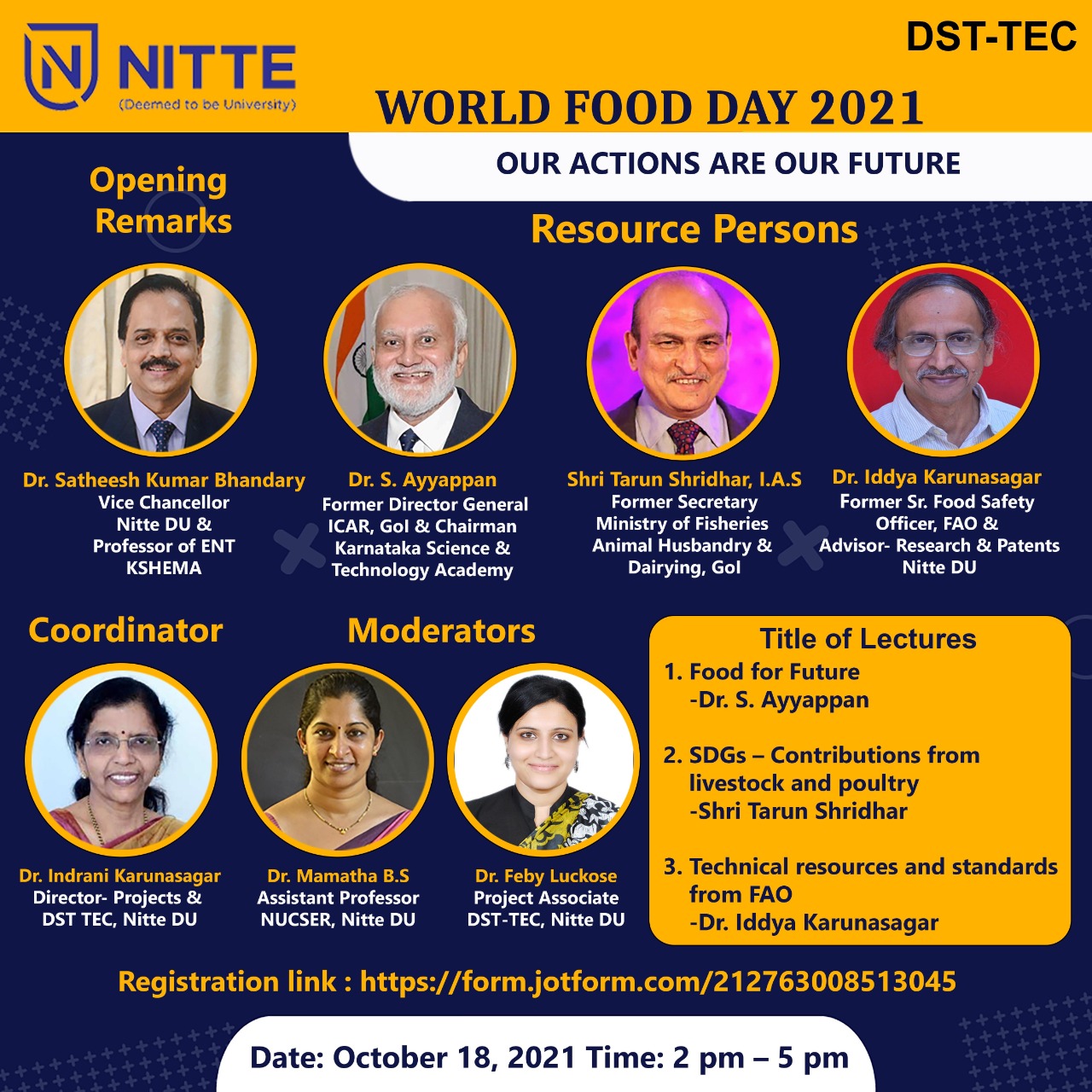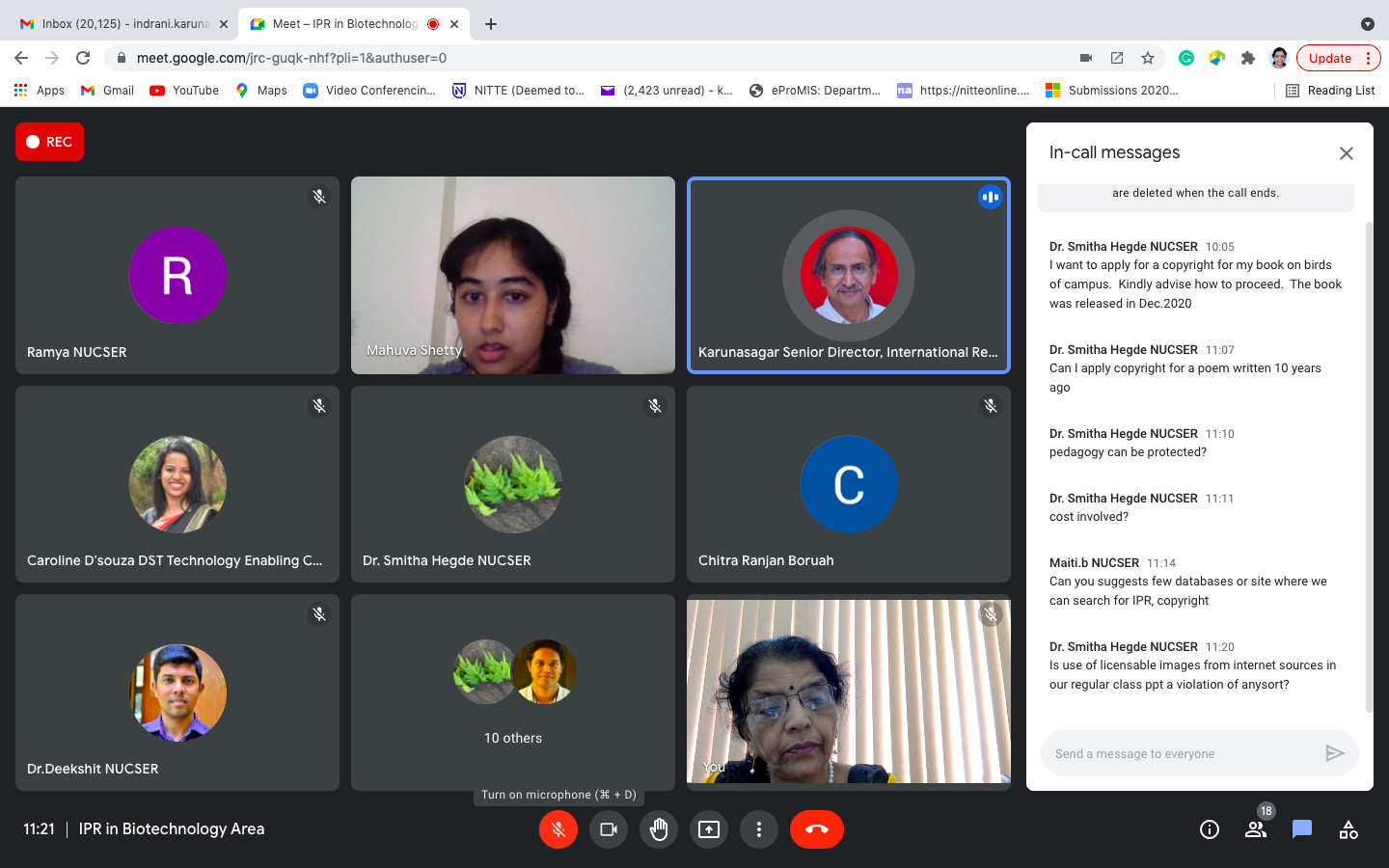WEBINAR ON WORLD FOOD DAY
Date : 2021-10-18
DST Technology Enabling Centre in collaboration with Nitte University Centre for Science Education and Research organized a webinar on the occasion of World Food day 2021. The international event was a clarion call for collective efforts towards combating issues of hunger, food insecurity and food wastage. The theme for World Food day 2021 was ‘Our actions are our future’. The key note speakers for the webinar were Padmashri Dr S Ayyappan, Former Director General ICAR & Chairman of Karnataka Science and Technology Academy, Shri Tarun Shridhar, Former secretary, Ministry of Fisheries, Animal Husbandry and Dairying, GOI and Dr Iddya Karunasagar, Advisor (Research & Patents). Dr Indrani Karunasagar accorded welcome and introduced the speakers to the audience. Hon’ble Vice-Chancellor, Nitte (DU) Prof. Dr Satheesh Kumar Bhandary, in his opening remarks highlighted the requirement for collective and comprehensive work to eradicate hunger and nutritional deficiencies. Sustainable system is a requirement to tackle the global hunger index as well as other health related burden, said Dr S Ayyappan. He spoke on aspects of better production, nutrition, better environment for a better life. He discussed the facts and presented statistics on Indian farming including strategies to improve it. This could result in enhancing farmers income through integrated farming by clustering of land, climate smart farming, agripreneurship, water footprint, innovation in water management, use of low cost technologies, use of nano fertilizers, production of high value crops, urban agriculture, cultivation floating horticulture, vertical farming, aquaponics, organic farming, biofortification, agritourism etc. Dr Iddya Karunasagar former senior Food Safety Officer, FAO explained about technical resources and standards available from FAO, their roles and responsibilities. He highlighted the various flagship publications of FAO that covers global data on food sector, process of scientific risk assessment to set the food standards, International agreements and guidelines regarding various aspects of food sector. Shri Tarun Shridhar reiterated the theme of the world food day and wanted concerted action to protect the livestock industry. He opined that livestock play a major role in the economic prosperity. To add on, he said livestock sector runs throughout the year and provides nutritional security and can also generate value added products. Yet its role is not recognised sufficiently.
Last updated
2022-02-26 06:48:43
